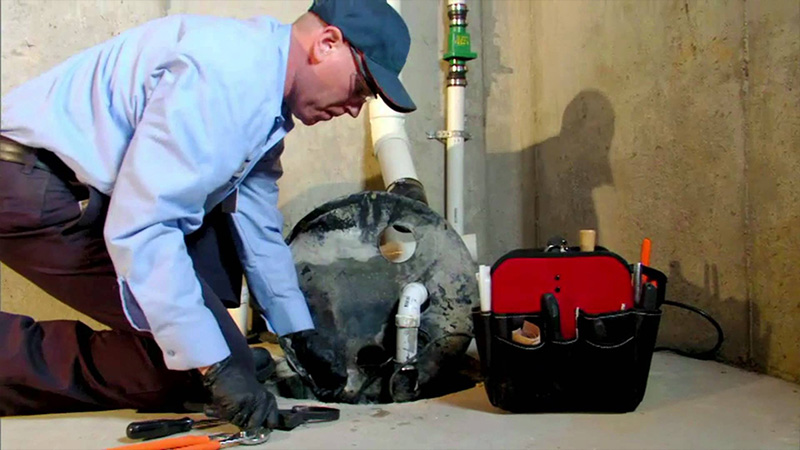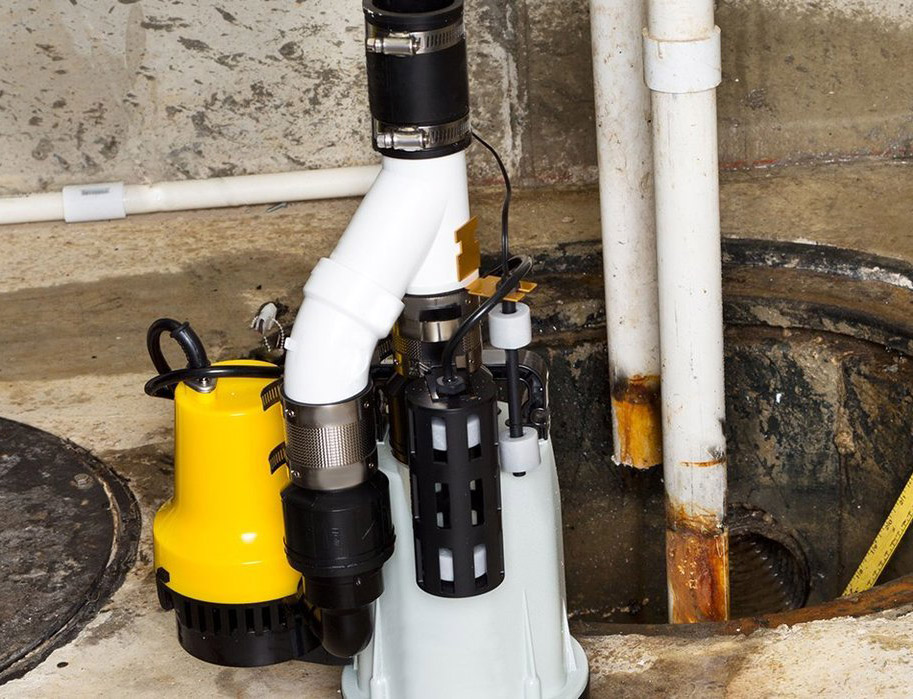Understanding the Secret Parts of Effective Water Purification Systems

Importance of Water Filtration Systems
Water purification systems play a critical duty in making certain accessibility to clean and safe alcohol consumption water by properly getting rid of pollutants and pollutants. These systems are necessary in attending to the growing concerns over water top quality and the prospective health threats connected with consuming infected water. By using various purification systems such as reverse osmosis, activated carbon, and UV sanitation, water filtration systems can successfully get rid of hazardous materials like germs, viruses, hefty metals, and chemicals from the supply of water.
Furthermore, water purification systems help to improve the preference and odor of water by getting rid of chlorine, sediments, and various other pollutants that can impact its quality. Pump repairs & installation. This improvement in water quality not only makes it extra palatable however also motivates people to drink an ample amount of water daily, advertising far better hydration and overall health and wellness
Kinds of Purification Components

Physical filters are designed to physically stress out impurities from the water. These filters can be made from products like ceramic, carbon, or perhaps sand, and they work by trapping fragments bigger than the filter's pores as water goes through.
Chemical filters utilize different chemical procedures to remove pollutants from the water. Instances include triggered carbon filters, which adsorb impurities, and reverse osmosis membrane layers, which make use of pressure to different impurities from the water.
Biological filters utilize living microorganisms like germs or algae to break down raw material and toxins in the water. These filters are often used in wastewater treatment plants or natural water purification systems.
Comprehending the various kinds of filtration components is important for choosing one of the most ideal water filtration system for particular filtration requirements.
Feature of Debris Filters
Sediment filters play an essential function in water filtering systems by properly recording solid bits put on hold in the water. These filters are typically the first line of defense in a filtering system, eliminating larger bits such as sand, silt, dirt, and corrosion before the water relocates with finer filtering stages. By trapping these debris, the filters stop them from getting to downstream parts, hence prolonging the life expectancy and efficiency of the entire system.
The function of debris filters is essential in keeping water top quality and shielding delicate equipment from damage brought on by particles. Additionally, by removing noticeable bits, sediment filters boost the clearness and taste of the water. Frequently replacing or cleansing sediment filters is vital to make certain ideal efficiency. Overlooking this upkeep can cause clogging, minimized water flow, and endangered filtration performance. Overall, debris filters are important parts that Full Report contribute dramatically to the efficiency of water purification systems.
Function of Triggered Carbon Filters
Playing an essential function in water purification systems, activated carbon filters contribute in getting rid of impurities and contaminants from the water system. These filters are made to adsorb and trap a wide variety of contaminants, consisting of chlorine, volatile organic compounds (VOCs), pesticides, and herbicides. The turned on carbon product has a large surface, enabling for the effective capturing of impurities via a process called adsorption. As water goes through the filter, the triggered carbon holds and draws in onto the contaminations, making certain that the water that comes out on the other side is cleaner and safer for consumption.
Activated carbon filters are very efficient at improving the preference and odor of water by reducing chemicals that can influence its high quality. Due to their versatility and integrity, triggered carbon filters are a key part in guaranteeing that water is purified to the greatest standards prior to reaching customers.
Comprehending Reverse Osmosis Systems
Reverse osmosis systems are advanced water filtering systems that employ an innovative process to remove pollutants and impurities from drinking water. These systems function by applying stress to the water, forcing it with a semi-permeable membrane. This membrane layer acts as an obstacle, allowing just distilled water molecules to travel through, while blocking larger particles such as minerals, chemicals, and other pollutants. Consequently, the water that comes out on the various other side is substantially cleaner and more secure for consumption.
In addition, reverse osmosis systems are fairly low-maintenance and can be set up under the sink or in a central filtering system, offering convenient accessibility to tidy water throughout the family. Generally, comprehending how reverse osmosis systems work can aid people make notified decisions about their water purification requirements.
Final Thought
To conclude, effective water purification systems are critical for making certain tidy and safe drinking water. The key parts of these systems include debris filters, turned on carbon filters, and reverse osmosis systems. By understanding the feature and function of each component, people can make educated decisions when picking a water filtering system. It is very important to focus on the high quality of water in order to promote total health and wellness and well-being.
Water filtration systems play a critical function in ensuring access to safe and tidy drinking water by successfully removing pollutants and impurities. By utilizing different purification mechanisms such as reverse osmosis, turned on site web carbon, and UV sterilization, water filtering systems can successfully eliminate dangerous substances like microorganisms, viruses, heavy steels, and chemicals from the water supply.
Debris filters play an important duty in water filtration systems by successfully recording that site solid bits put on hold in the water (Pump repairs & installation).Playing an important duty in water filtration systems, triggered carbon filters are crucial in removing pollutants and pollutants from the water supply.Reverse osmosis systems are sophisticated water purification systems that employ an advanced procedure to remove pollutants and pollutants from alcohol consumption water